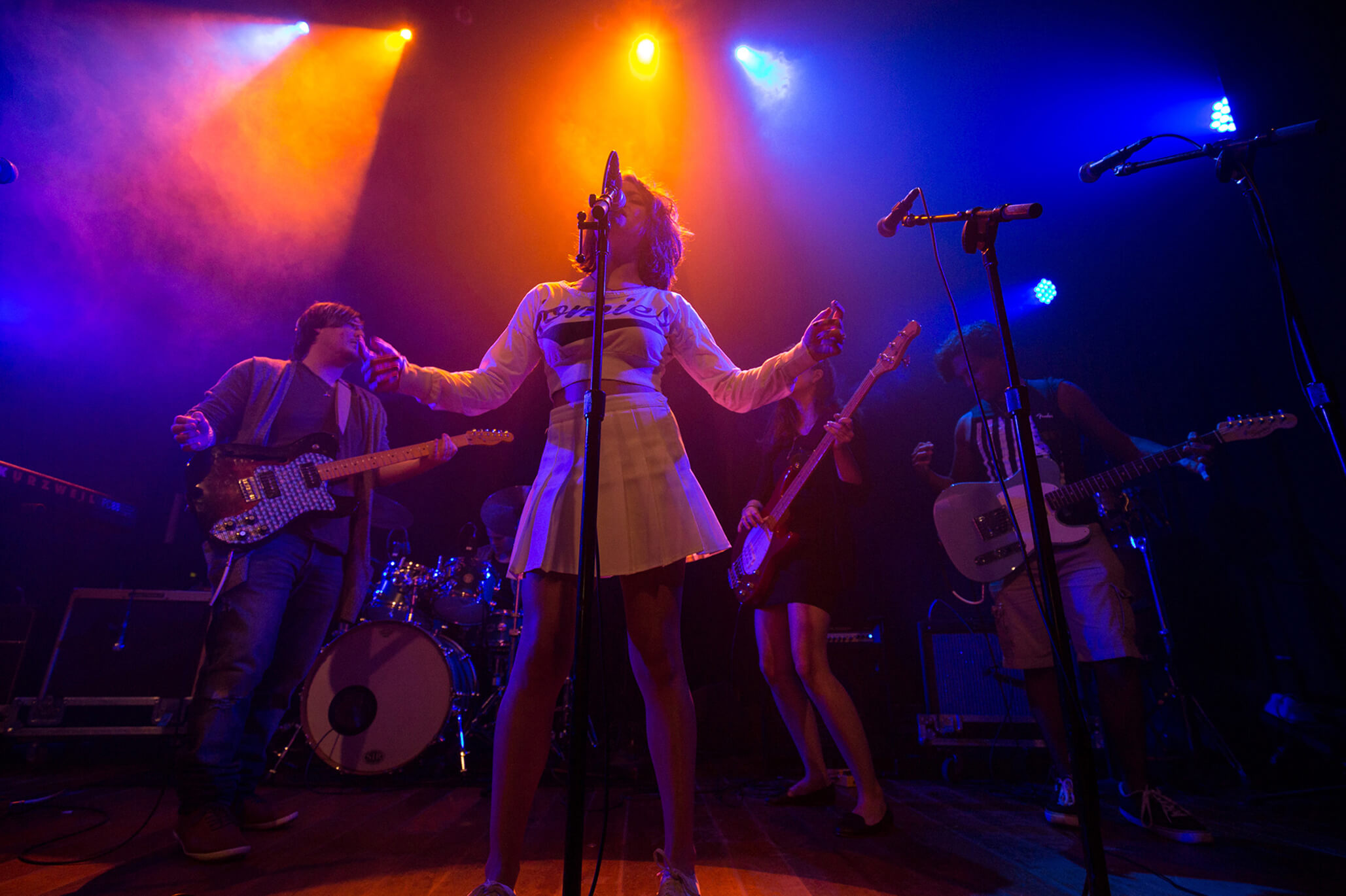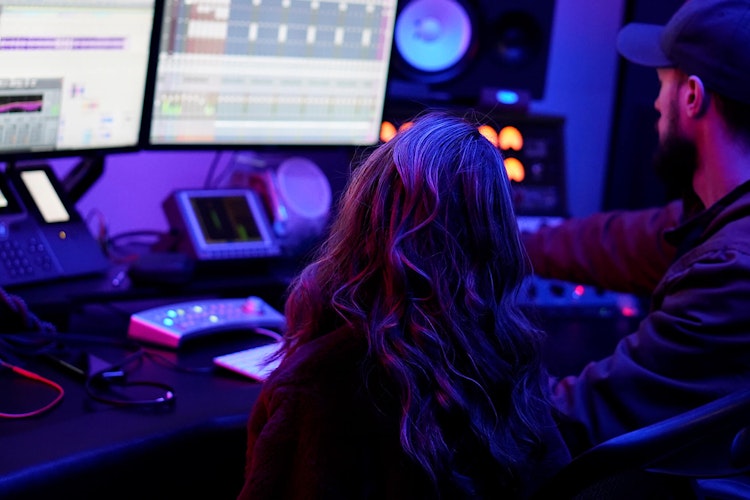Today’s music scene is composed of all kinds of musicians, including independent artists, musical hobbyists, signed label artists, and more. Some enjoy music as a creative outlet, while others dream of a professional career in music with a passion to be signed with a major music label. The process of getting a record deal can seem a bit elusive, but being signed to a label has its value, and offers resources that can take artists to the next level.
School of Rock had the opportunity to get extremely beneficial information from Jason Flom, the Founder & CEO of LAVA Records, and Devon O’Connor, A&R for LAVA Records, who provided their insights on the benefits of being signed to a label and helpful tips in landing a record deal.
As we know all too well, there’s only one thing that stays constant in an ever-evolving industry - and that’s change! We were curious to know how the music industry has shifted in recent years as a result of technology, and how this change has affected music labels and artists alike. Jason shares that as result of evolving technology, new platforms have provided artists and music labels with the ability to scale their music worldwide:
“It’s an exciting time to be an emerging artist in the music industry because technology has made everything from creation to distribution to promotion so accessible,” Jason exclaims, “on a nearly daily basis, we see new technologies and platforms emerging that provide artists and music labels with powerful resources to make great music and engage audiences all around the world!”
What is a record deal?
Understanding the process of signing with a label can be very helpful for any aspiring artist. However, many rarely know the meaning of this agreement or how it works. LAVA Media sheds some light on this below:
“In general, a record deal is where an artist enters into an agreement with a label where the label commits to fund the artist’s recordings, including some level of in-pocket monies to the artist, and to provide marketing and sales, in exchange for which the artist will record exclusively for the label, the label usually owns the recordings made by the artist, and after costs are recovered the artist gets a percentage of the revenues from sales and licenses of their recordings. With such dramatic developments in social media and different ways that music is discovered and distributed, there are lots of conversations happening about rethinking the traditional record deal, and forward-thinking labels like our partners at Republic have some of the best minds in the business keeping us at the cutting edge of this evolution.”
5 Tips for Getting a Record Deal
In addition to clarifying the meaning of record deal, LAVA Media wanted to provide a few key tips for artists actively pursuing one. We asked for 5 tips it would give to an artist pursuing a record deal:
Tip 1.
Make music that you love so much you want to sing it at the top of your lungs from an arena stage.
Tip 2.
Be your authentic self! Labels want to sign something that feels like it comes from a real place – something that blows them away and that they need to share with the world.
Tip 3.
Share your music through whatever means you can. You can distribute it on streaming platforms, start performing at local venues, make quirky videos for social media, or tell people one by one until more and more people are listening.
Tip 4.
Build your team when it feels right. As your career grows, you will likely want to partner with a manager, a lawyer, a publicist, a label, etc. If you meet people who are perfect fits for those roles and who are excited about what you’re doing, then go ahead, partner up, and take over the world! But don’t feel like you need to enter into a deal with someone just to have a team. You know what you’re trying to create better than anyone else does, so keep working towards your vision until the right people come along who see it too.
Tip 5.
Never give up! If your music isn’t resonating with a particular record label just yet, it doesn’t mean that your music is any less deserving of attention. Keep doing what you do, and you’ll find the right people to champion your music with you, whether it’s a record label or an assortment of friends who believe in the mission. Be patient and be persistent, and don’t wait until everything is going right to be happy. You’re making music! This is supposed to be fun!
What Do Record Labels Look for in an Artist or Band?

Many artists trying to land a record deal want to know what major labels look for in an artist or a band. Jason elaborates more below, and shares that it all begins with the music:
“It always starts with the music!”, LAVA Media adds, “labels are looking for great artists with great songs that move people and remind them why they fell in love with music in the first place. “Highway Tune” by Greta Van Fleet was one of those songs for us at LAVA. It absolutely rocked us from the very first listen!” “Labels are also looking for evidence that the artist and their music are resonating with more than just the A&R staff. Any sort of momentum can move the meter, whether it’s strong social media engagement, a record that is streaming well, or a cool sync placement in a TV show or movie.”
How Do Royalties Affect Artists?
Similarly, many artists are unclear on the topic of music royalties and how it impacts them. LAVA Media explains that music royalties are a negotiated percentage of the monies the label receives from sales, licensing, and other uses of the artist’s recordings and clarifies how this is paid out to the artist:
“Under most recording agreements, artists earn royalties, which are a negotiated percentage of the monies the label receives from sales, licensing, and other uses of the artist’s recordings. The royalties are paid out to artists after the royalty earnings exceed the investment that the label made in the development and marketing of the music – this is called recoupment. In most record deals, the artist will receive an “advance” of money that is a prepayment of those royalties, which is kind of like a guaranteed amount of compensation. There is another kind of royalties called publishing royalties that are paid for the use of the song that is contained on the recordings. So, for example, when you hear an artist’s recording of a famous song like “Driver’s License,” there are royalties being earned by the artist Olivia Rodrigo and then also royalties for the writers of that song.”
How to Find the Right Record Label
Since many different labels exist, it’s beneficial for both the label and artist to find the right fit. Finding the right label for you can make all the difference in making the most of your professional career:
LAVA Media explains, “It’s best to have a team that understands the artist’s vision for their music and for their impact. Researching the artists on various labels can give you a good idea of what sort of projects they take on and which labels might be a good home for you. And then there’s just that personal connection and feeling that you like the “vibe” of the label and what they stand for. [Here] at LAVA, we find increasingly that artists respond not just to our track record and ability as a smaller label to provide close personal attention to our artists, but also our decades of commitment to social justice causes, which is more important and relevant now than ever.”
Since the evolution of technology has greatly impacted the music industry, it has changed the way artists are able to market themselves in today’s music scene. Social marketing has become a huge platform for aspiring artists to get noticed by many major labels:
“In today’s digitally focused culture, the best and conveniently most affordable way to market and build your following is through social media. Posting about your work and who you are and sharing the process with your audience is the best way to engage potential fans and arm them with all they need to become your new advocates to their own audiences. And it’s free!”
Providing even more clarity on record deals, LAVA Media shares a few things that are important for an artist to know before signing a contract:
“Know what you want to accomplish and understand whether the label can help you do it. It’s important to understand what you’re signing and what the terms mean. Don’t be afraid to ask as many questions as you need! It’s always best to have a professional attorney review a contract before signing it to make sure that you fully understand what you are committing to. In general, it’s important to know what you are giving up, what you are receiving in exchange, and for how long these terms will be placed. Being clear about your goals and what it takes to accomplish them is a great place to start.”
About The Author:
Peyton Brown is a Marketing Coordinator for the School of Rock corporate team. Although she doesn't play an instrument (yet), she is a long-time dancer and sings in her church's band named The Frontline.




